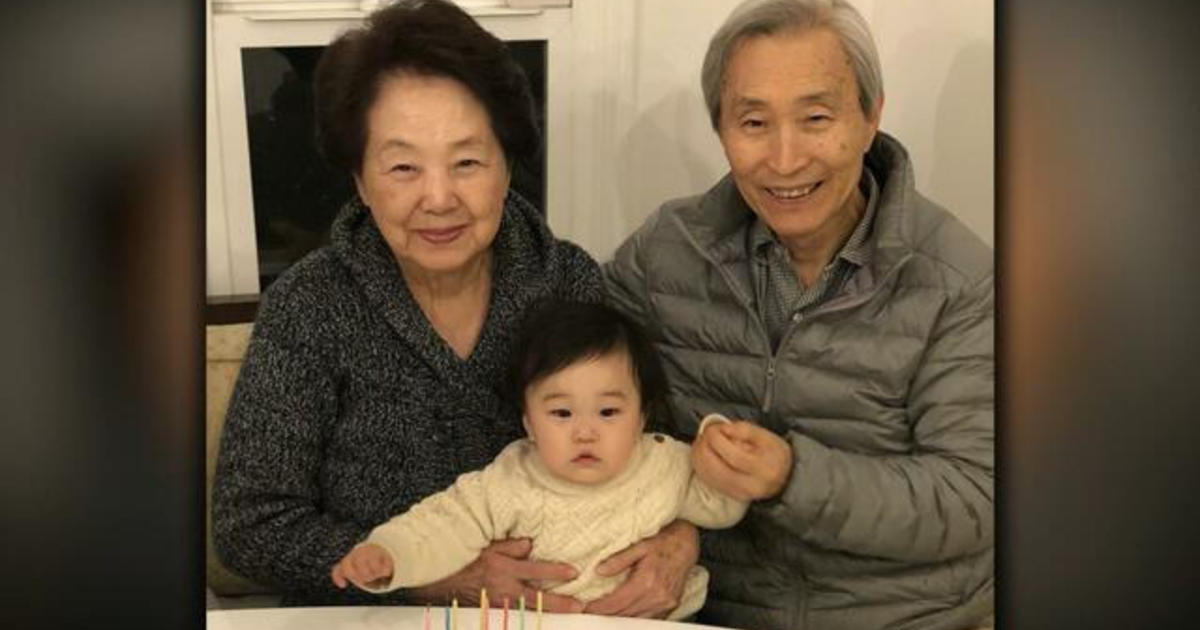U.S. restricts work permits for asylum-seekers, raising fears of homelessness and hunger
As a single mother of two young children, including her nine-month-old U.S. citizen daughter, W.L. worries about her ability to support her family, particularly in the midst of a pandemic.
The asylum-seeking mother, who says she was a victim of sexual violence in her native Guatemala, does not have a permit to work legally in the U.S., and under a new Trump administration rule taking effect Tuesday, she will not be able to apply for one for the next seven months.
"We need work permits to cover our basic necessities, especially for our children," W.L., who asked for her initials to be used rather than her full name, told CBS News in Spanish.
Since President Trump entered the White House, his administration has implemented and proposed various policies designed to restrict eligibility for U.S. asylum, a humanitarian protection available to foreigners fleeing persecution based on their religion, political views, nationality, race and membership in a "particular social group," like the LGBTQ community and victims of severe domestic abuse who can't turn to their countries' governments for help.
To defend the changes, the administration has argued that longstanding asylum policies and laws encourage unauthorized border crossings and allow economic migrants to misuse the humanitarian protection in order to work in the U.S. while their cases are adjudicated by the nation's backlogged immigration courts. The changes being implemented on Tuesday are part of the broadest restriction yet on work permits for asylum-seekers.
The rule will require migrants to wait 365 days from the day they file their asylum petition before applying for work authorization, replacing the previous 150-day timeline. It also disqualifies asylum-seekers from being able to request work permits if they crossed the border illegally. Last week, another rule took effect, scrapping the 30-day window that U.S. government adjudicators previously had to approve work authorization petitions from eligible asylum-seekers.
W.L., who now lives in Ohio with her children, is one of the migrants at the center of a national lawsuit challenging the policies, which advocates say will make low-income asylum-seekers vulnerable to homelessness, hunger, work exploitation and scarce access to medical care. The 28-year-old would have been eligible to apply for a work permit next week under the previous regulations. Because of the new rules, however, she won't be able to apply until April 2021.
Citing her own case, W.L. pushed back on the notion that most migrants seek asylum solely to secure better economic opportunities. According to her asylum application, W.L. was repeatedly raped in Guatemala by her former boss, a powerful and wealthy lawyer. She said he first raped her when she was 19 and subsequently continued to abuse her physically and sexually, impregnating her twice and forcing her to abort one of two pregnancies.
After her son was born, W.L. said the father, her alleged abuser, refused to support him financially. She filed a case in family court. That's when the threats by her alleged abuser's family started, according to the asylum application. W.L. said she filed a police report, but the threats continued, prompting her to trek north to the U.S. southern border with her son, who is now 8.
"We don't come to this country just for money. It's very difficult to leave our homes, our families, and to face that danger along the journey," W.L. said.
Unless the court case she's named in is successful, W.L. will not be able to secure legal employment anytime soon. The Guatemalan asylum-seeker said she has turned down offers to work under the table because she wants to "do things the right way." It has not been easy, she said, adding that charitable groups have helped her cover her children's medical expenses.
The organizations who mounted the legal challenge in Maryland district court on W.L.'s behalf are hoping to convince the judge overseeing the case that the rules not only violate federal administrative law, but are invalid because they were approved by Acting Homeland Security Secretary Chad Wolf, who they say was unlawfully appointed to his role.
"The rules are completely irrational and issued by a person without the authority to issue them," said Mariko Hirose, who oversees litigation at the International Refugee Assistance Project, one of the organizations challenging the restrictions.
Earlier this month, the Government Accountability Office, a congressional investigative agency, found that Wolf and his deputy, Ken Cuccinelli, were both improperly appointed — a finding that lawyers say bolsters their argument that directives approved by the Homeland Security leaders should be invalidated. The Department of Homeland of Security has strongly rejected the Government Accountability Office's legal opinion, accusing the watchdog of partisanship.
Conchita Cruz, co-executive director of the Asylum Seeker Advocacy Project, one of the groups in the Maryland case and W.L.'s legal services provider, said the new rules run contrary to the Trump administration's position that immigrant communities should be self-sufficient — the primary stated objective of the 2019 "public charge" wealth test for green cards and immigrant visas.
"It does not make sense to put hurdles in the way of asylum applicants getting work authorization and being able to work legally and being able to support their family — especially during a global pandemic," Cruz told CBS News. "That flies in the face of any other goal of ensuring that asylum applicants are able to work and sustain themselves."
In the text of the final rule, the Department of Homeland Security acknowledged some of these concerns, but said it disagreed with the notion the policy is "overly burdensome, cruel, or precludes aliens from becoming self-sufficient." In response to public comments saying the rule could leave asylum applicants unable to pay for housing, the department said those concerned about becoming homeless "should become familiar with the homelessness resources provided by the state where they intend to reside."
Cruz called the response "callous" and "cruel."
Officials at U.S. Citizenship and Immigration Services (USCIS), which adjudicates work authorization requests, did not respond to further questions about the rule. In June, when the policy was finalized, Joseph Edlow, the de facto head of USCIS, said the changes "restore integrity to the asylum system and to reduce any incentive to file an asylum application for the primary purpose of obtaining work authorization."
Meanwhile, back in Ohio, W.L. is hoping an immigration judge approves her asylum petition so she can remain in the U.S. with her son and daughter.
"I hope, I pray to God, that I get a positive response. I can't return to my country. My situation is very complicated," she added. "In my country, we don't have the safety we need."




